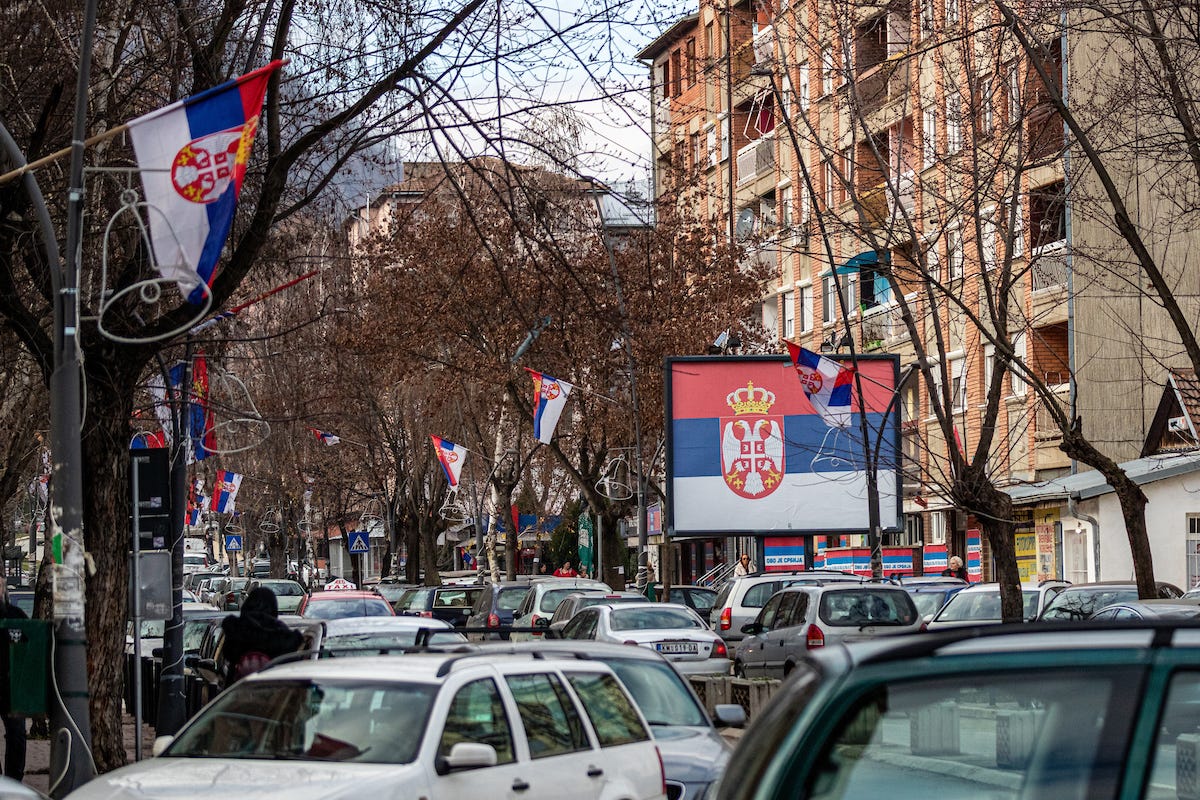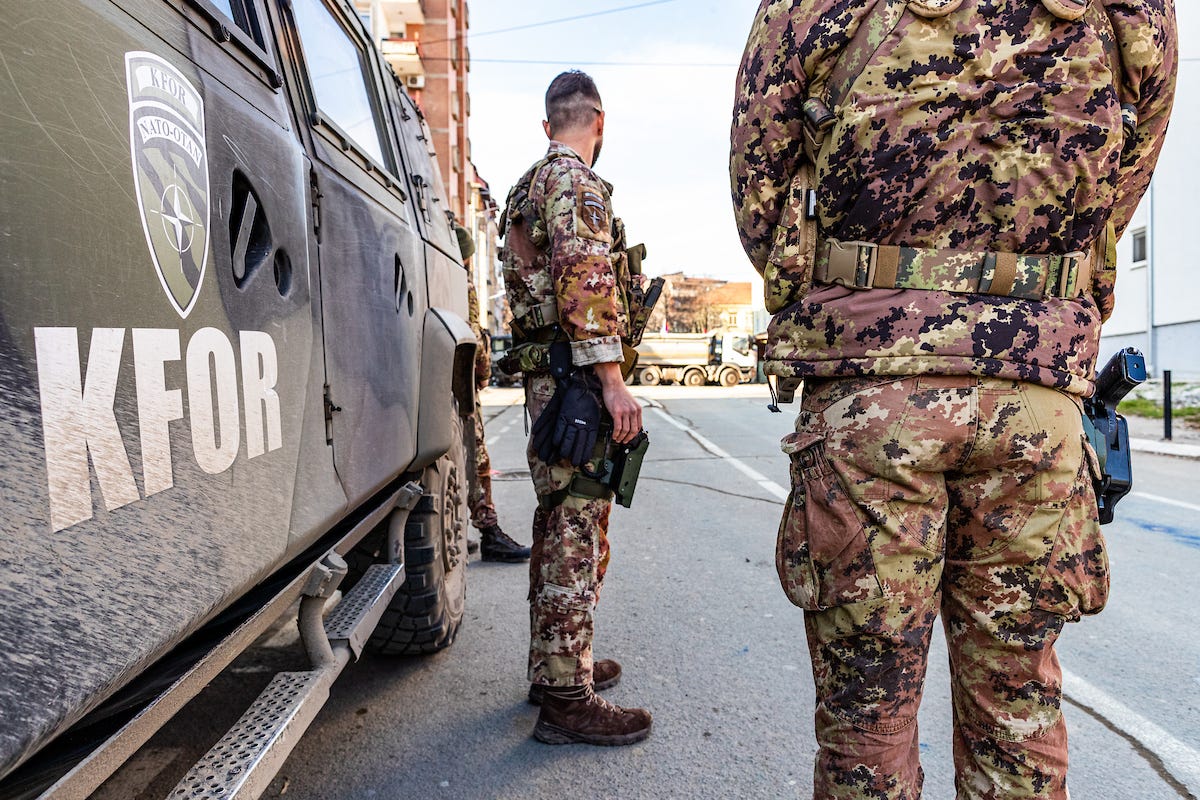Fanning the Flames: Serbia's Role in Fuelling Inter-Ethnic Tensions in the Western Balkans
Serbia's involvement in stoking inter-ethnic tensions in the Western Balkans has exacerbated the volatile situation, intensifying conflicts and hindering efforts for lasting peace and stability.
First and foremost, Bosnia and Herzegovina has experienced a deepening divide among its ethnic groups, with the separatist leader Milorad Dodik at the forefront of the political agenda to separate Republica Srpska from the rest of the country. Dodik's actions not only exacerbate existing tensions but also raise suspicions of his potential role as a foothold for Putin's influence in the Balkans. This situation has created a volatile atmosphere, posing a significant threat to stability and peaceful coexistence.
Montenegro, too, has not been spared from the ramifications of Serbia's actions. Here, the Serbian Orthodox Church has emerged as a central player in fanning the flames of unrest. The Church's involvement has stirred up nationalist sentiments, inciting division and exacerbating existing fault lines within Montenegrin society. Consequently, the delicate balance in the country has been disrupted, further straining inter-ethnic relations.

Meanwhile, Kosovo has also found itself caught in the crosshairs of escalating tensions. In northern Kosovo, the Serbian-backed structures and their influence over the Serbian minority population have played a detrimental role. Coercion tactics have been employed by Belgrade to pressure Kosovar Serbs into relinquishing their responsibilities in the region's municipalities in protest over Pristina's order to use Kosovo vehicle licence plates instead of those issued by Serbia, undermining the authority of the Kosovo government and impeding progress towards stability.
In an effort to address the situation, authorities in Prishtina announced fresh local elections, with Srpska Lista, the Belgrade-backed party representing Kosovo Serbs, saying that it would boycott extraordinary local elections in four municipalities which would be held after a mass resignation of Serbs from Kosovo institutions. However, Serbia-backed militias vehemently opposed this move, resorting to violent acts such as arson attacks on election commission offices and the erection of roadblocks. The Government of Kosova, recognizing the urgency of the matter, expressed determination to remove these obstacles. Yet, the international community's response has been perplexing, as it discouraged unilateral action while seemingly encouraging the Belgrade-backed separatists to persist with their disruptive activities. Such mixed signals from the international community have only served to perpetuate the cycle of violence and instability.
In the midst of this tumultuous landscape, it is disconcerting to observe the international community's complicity and appeasement of Serbia's actions. Despite being self-proclaimed champions of democracy, human rights, and the rule of law, these actors have failed to effectively address Serbia's disruptive behaviour. Their reluctance to confront Serbia, despite the mounting evidence of its role in fueling inter-ethnic tensions, raises questions about their commitment to upholding the principles they espouse.
Ultimately, the consequences of Serbia's foreign policy alignments with the Kremlin and its alleged interference in the affairs of neighbouring countries cannot be underestimated. It is imperative for the international community to recognize the gravity of the situation and take decisive action to address the root causes of these inter-ethnic tensions. Failure to do so not only undermines the stability and progress of the Western Balkans but also jeopardizes the broader goal of fostering peace and unity in the region.

Clashes and Boycotts: Tensions Escalate in Kosovo-Serbia Relations
The root cause of the clashes can be traced back to April's local elections, which were boycotted by Kosovo's Serb minority in four northern municipalities. This boycott allowed ethnic Albanians to assume control of the councils, leading to increased tensions. The Serbian community demanded the establishment of an association of Serbian municipalities, with Government in Prishtina expressing concerns that this association could pave the way for the formation of a pro-Serbian statelet, intensifying the divide.
The latest clashes occurred when the newly elected mayors attempted to take office, prompting Belgrade-backed Serb separatists to coerce some of the local residents to rally and block their path, sounding a community alarm as a warning sign of a police presence. Kosovan police intervened to escort the politicians past the protesters, resulting in violent clashes. Five officers were injured, and several vehicles were damaged during the unrest, including a car that was set on fire.
Responding to the situation, Serbia's Defense Minister, Milos Vucevic, revealed that President Aleksander Vucic had ordered the urgent movement of troops to the Kosovo border. Vucevic denounced what he referred to as "terror against the Serb community in Kosovo." In contrast, US Secretary of State Antony Blinken criticized the Kosovan government's use of force, stating that it had acted against the advice of the US and its European Union allies. Blinken argued that these actions needlessly escalated tensions in the region and undermined efforts to normalize relations between Kosovo and Serbia.
Escalating Clashes in Northern Kosovo Test Fragile Peacekeeping Efforts
In a distressing turn of events, the delicate situation in northern Kosovo has plunged into further violence, with clashes erupting between NATO peacekeeping soldiers and Serb protesters. Reports indicate that approximately 25 soldiers from the Italian and Hungarian contingents of KFOR, the Nato-led peacekeeping mission, sustained injuries during the confrontations. Their presence had been established to safeguard three town halls within the region.
KFOR, in a statement, condemned the violence and characterized the attacks on the peacekeeping soldiers as unprovoked. However, it fell short of addressing the fact that the "protestors" were organized and led by factions backed by Belgrade, with local residents allegedly coerced into participating. The soldiers, subjected to the brunt of the unrest, suffered trauma wounds, including fractures and burns, owing to the detonation of incendiary devices amid the clashes. The severity of these injuries bears witness to the heightened intensity of the confrontations.
The present state of affairs in Bosnia and Herzegovina, Montenegro, and Kosovo acts as a stark reminder of the highly unstable and unpredictable environment, as tensions steadily escalate due to Serbia's decision to align its Foreign Policy with the Kremlin.
The recent clashes in Kosovo highlight the significant obstacles faced by peacekeeping forces in their quest to maintain stability in the northern region. Serbia's involvement in the ongoing tensions exacerbates an already volatile situation characterized by long-standing ethnic disputes between Serbs and ethnic Albanians.
As these incidents unfold, it becomes increasingly vital for the international community, especially NATO and other relevant stakeholders, to intensify their efforts to de-escalate the situation. A critical step is to address Serbia's alignment of foreign policy with the Kremlin in the Balkans, holding them accountable for their actions. This action can help foster meaningful dialogue between the conflicting parties and pave the way for a more peaceful resolution.
These acts of violence and the resulting injuries serve as a stark reminder of the delicate nature of peace in the region, emphasizing the urgent need for a comprehensive approach to address the pressing issues affecting northern Kosovo.
The dispute between Kosovo and Serbia dates back to Kosovo's declaration of independence in February 2008, following strained relations between the mainly Albanian inhabitants and the Serb population. While the United States and major European Union countries have recognized Kosovo as an independent state, Serbia, supported by Russia, refuses to do so, aligning with the stance held by most ethnic Serbs residing within Kosovo.
The recent clashes and the deployment of Serbian troops to the border further exacerbate the ongoing tensions between Kosovo and Serbia. The situation underscores the fragility of the region and poses a significant challenge to efforts aimed at fostering stability and normalizing relations between the two parties.
Sources: The Guardian, The Week, VX Media, Reuters, Foreign Policy, Prishtina Insight, Balkan Insight and Al Jazeera.




